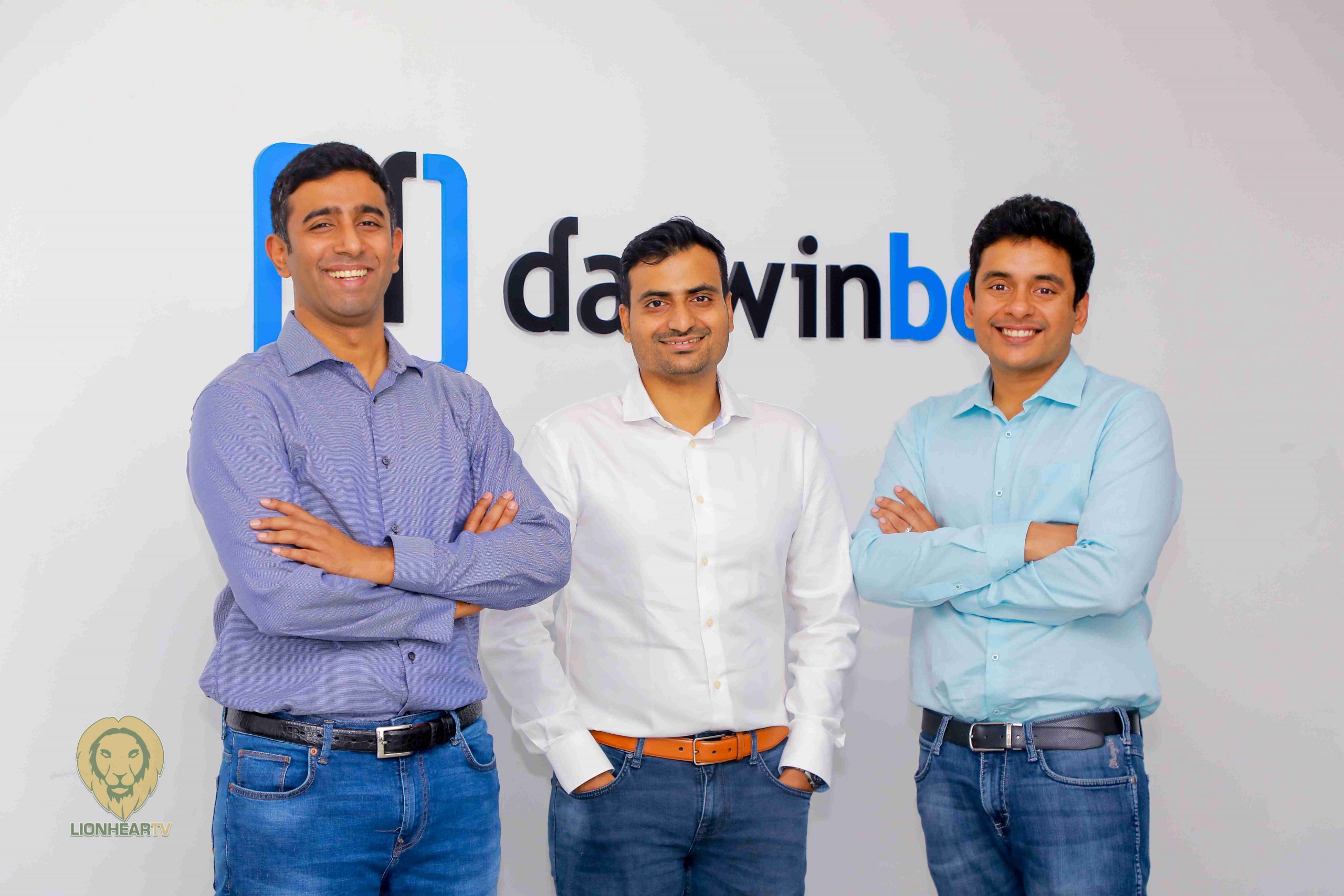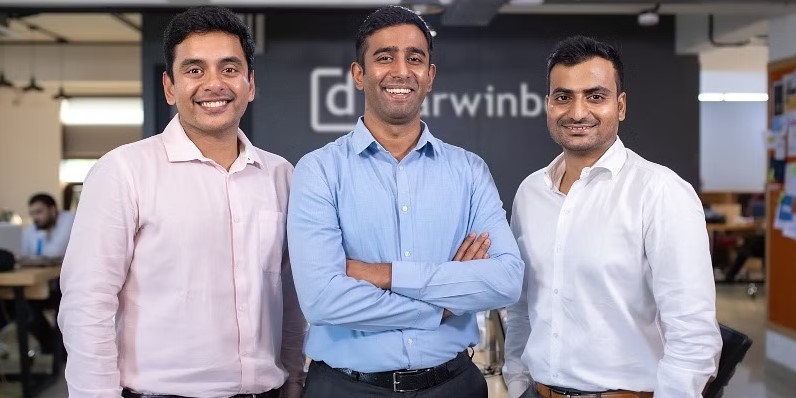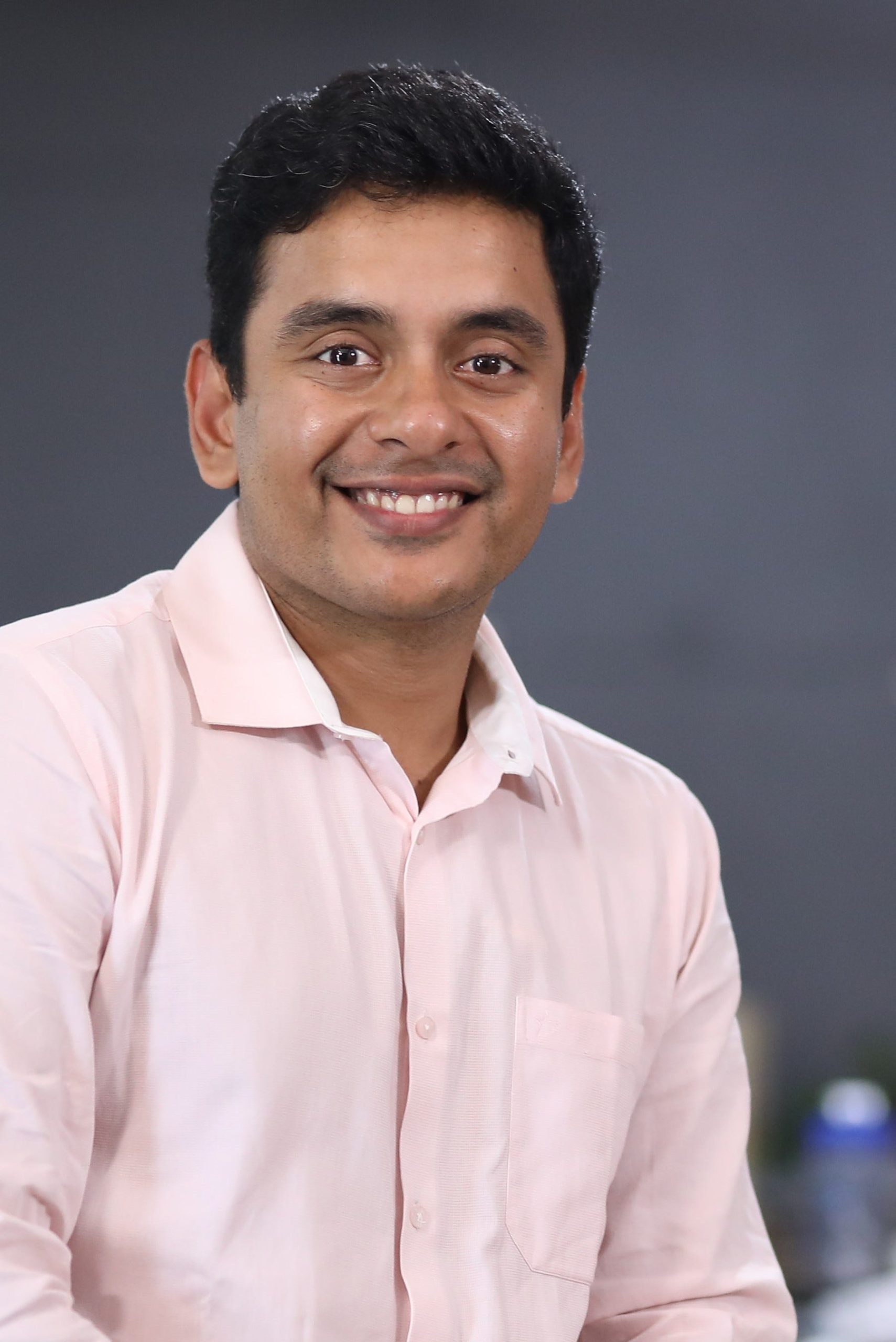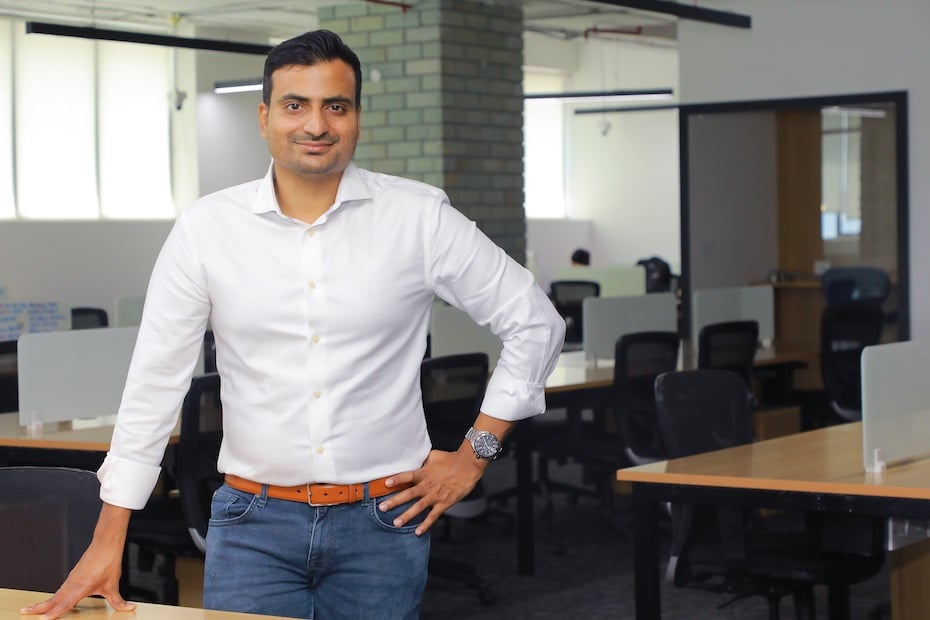(Aug 18, 2023) When Darwinbox was first conceptualised, the other players on the field were two Goliaths, SAP Labs and Oracle. The idea was so daring, it was audacious, more so in the hands of three first-gen entrepreneurs, Chaitanya Peddi, Jayant Paleti and Rohit Chennameni. This was in 2015. In less than a decade, Darwinbox went on to achieve unicorn status, stands proudly alongside industry titans and has put India on the global HR-tech map. Darwinbox boasts clientele like Domino’s, Domino’s, Starbucks, Kotak, and Swiggy, helping them manage their HR processes, including hiring, attendance, and resignations, through a tech-enabled, user-friendly, end-to-end experience. In the end, it was about identifying a gap in the market, and the courage to take a risk, which all three founders possessed in spadefuls.

Entrepreneurs Chaitanya Peddi, Jayant Paleti, and Rohit Chennameni.
The story and journey of Darwinbox is unique in many ways than one. “We were one of the rare SaaS (Software as a service) companies that set out to build a product from Asia for the world, while most SaaS companies focused on the West. Our fundamental premise was that it is difficult to build systems that cater to the different cultural contexts of Asian businesses and users,” says co-founder Jayant Paleti, as he connects with Global Indian for an interview. Paleti, an alumnus of IIT-Madras and IIM-Lucknow, began his career at EY, as did Chaitanya Chennameni, who graduated from XLRI-Jamshedpur. Rohit, who holdss a B.Tech from VIT and an MBA from IIM-Lucknow, worked with McKinsey.
Starting out
The career paths of all three co-founders had one thing in common – they advised large enterprises on business transformation, digitalisation, and M&A. They found, across the board, that their clientele struggled to streamline HR processes, and organisations struggled to furnish critical information about human capital. The gap was most evident in a large-scale merger conversation in the life sciences sector led by Jayant in November 2014, where to his surprise, neither of the stakeholders was aware of the percentage of their talent attrition.

As the trio went a step deeper to solve the problem, they realised the real trouble was with multiple systems (every organisation had an average of 3 HR systems) across the employee lifecycle which made it difficult to sync and analyse data. And in cases where there were integrated options, the solutions were rigid and clunky for the HR and employees alike resulting in poor adoption. To deal with these challenges and to make HR technology more intuitive, integrated, and insightful, Darwinbox was conceived and started in 2015.
Within a short span, Darwinbox became one of Asia’s fastest-growing HR technology platforms that helped enterprises cater to HR needs across the entire employee lifecycle. It became a success story and the founders, were poster boys of the Indian start-up scene.
Meeting an unmet need
The trio challenged the status quo and entered the playground of global legacy players. Initially, they put in their life savings before the venture capital funds discovered the start-up in 2017. They were aware of the challenges they faced and knew that they had to create a holistic solution that would stand the test of time. The initial offerings from Darwinbox were attendance and payroll which was the need for every firm but slowly they started to build up the platform by adding aspects like automation, simplifying regular processes (like leave and appraisal), and digital education.
In eight years, all their gambles paid off and Darwinbox has emerged as a leading player in South Asia (3rd largest), Southeast Asia, and MENA (Middle East and North Africa) by displacing some of the heavy hitters like SAP, Oracle, Workday, and others that boasted decades of legacy. Today more than 800+ enterprises, and two million employees from across 90+ countries love the Darwinbox experience, and the company is backed by reputed global investors like Technology Crossover Ventures (TCV), Salesforce, Sequoia, Lightspeed, 3one4 Capital, and Endiya Partners.

Rohit Chennameni., co founder of Darwinbox.
What contributed to their success was thinking ahead of the curve. When they started, most companies were focussed on the US, the entry barriers were tough and nobody considered Asia to be a viable and attractive market. Rohit recalls, “The competition was deeply entrenched and difficult to shake – SAP and Oracle. While these were some of the perceived challenges that we have overcome or are in the process of overcoming, we are on our way to becoming the top Human Capital Management player in Asia.”
Breaching barriers
As the start-up is valued as a Unicorn, Chaitanya adds, “We are very grateful to have the valuation we have now, but it is a milestone and part of our journey and not the destination. Innovating on the product is an ongoing process and the Unicorn valuation only reinforces our commitment to our customers. We are obsessed with customer success, and we will keep a steady focus on that every day.”
Rohit says that it has been an immensely satisfying journey. He adds, “It feels like yesterday when we had this idea to start Darwinbox Today we are one of the top three HCM players in Asia and have taken on the giants on their battlefield. We have grown to 750 plus employees and a Unicorn valuation in eight years. We service 650 plus enterprise clients and are present in over a hundred countries.”

Chaitanya Peddi, co-founder of Darwinbox.
The start-up has over the years increased its range of offerings. Today, it also provides a social network that enables better employee connectivity and is quick to integrate AI as part of the services, be it leveraging the technology for leaving applications or meetings that can be scheduled at a voice command. As they scale the summit of success, they remain motivated and enthused about the product they created. Jayant explains, “It’s a balance between growth and profitability that we are focusing on. There is a lot of opportunity globally for this space and we are bringing in a lot of innovations as well. As we take on the global giants, the balancing act is critical.”
The trio are gunning for global dominance. They aim to continue to grow in Asia to become the no.1 HR tech player in Asia ahead of SAP and Oracle apart from looking at expanding to new markets like US, UK, China, and Australia. “We want to be #1 in all the markets we are present. In the next 2-3 years, the aim is to get to $100 million in revenues. Given our experience in displacing global competition here, we are set to launch in the US market later this year. And are now ready to compete head-on in the largest enterprise technology markets in the world.” they sign off.




